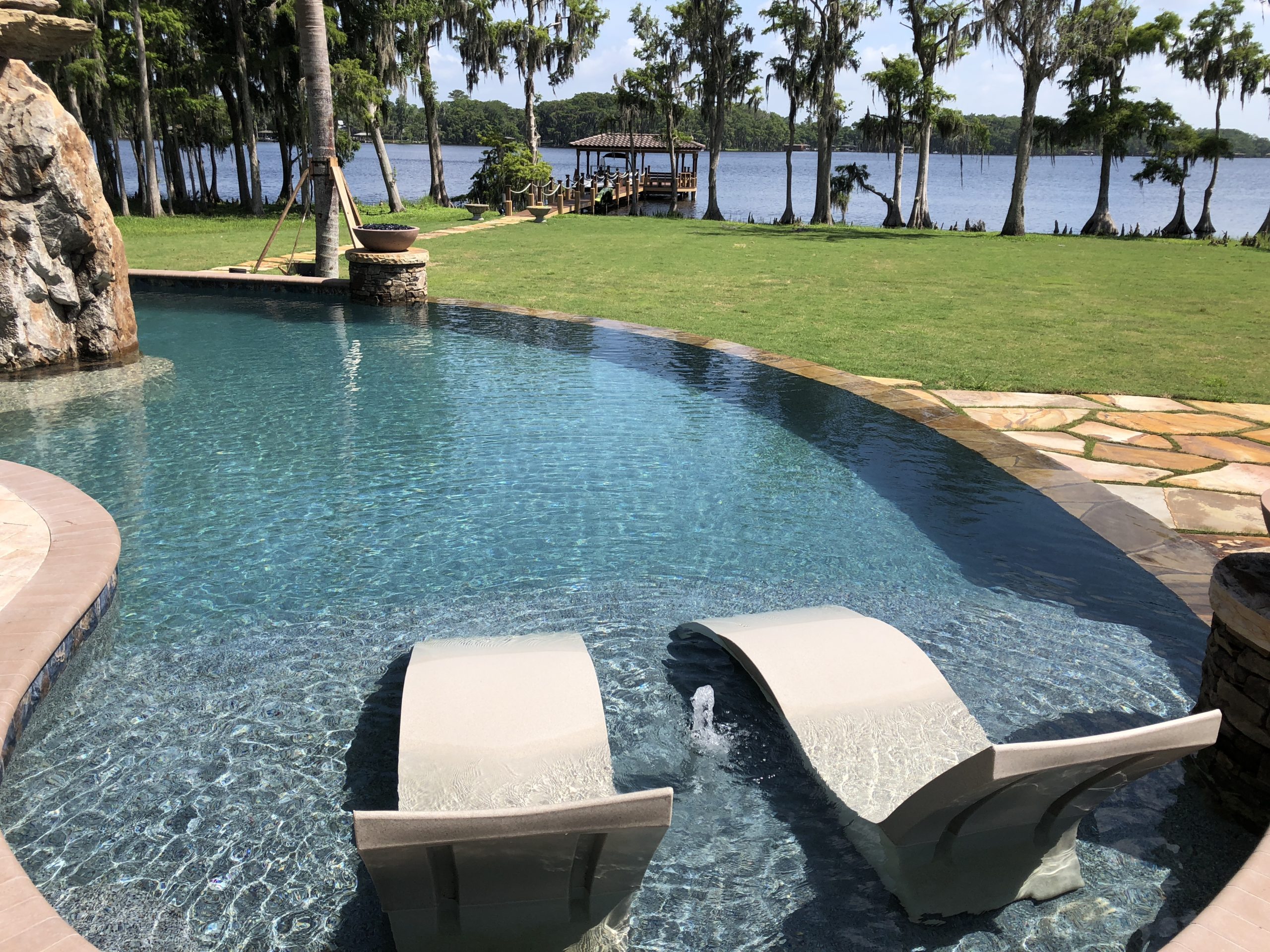
As a Pool Owner, You Should Know…
- Weekly maintenance is a necessity to protect the lifespan of your pool and equipment. Failure to properly maintain your pool could cut its life in half which ultimately could end up becoming costly for repairs to the surface and equipment.
- The water chemistry needs to be checked and balanced weekly. Improperly balanced water looks murky, irritates your eyes and skin, and can become a breeding ground for bacteria in your pool. The six main components for weekly water balancing are: free chlorine, pH levels, alkalinity, calcium hardness, cyanuric acid and total dissolved solids. Periodically you should test for phosphates and metals. Also, if you have a salt system, you’ll need to check your salinity levels.
- Skimming, scrubbing and vacuuming every week is essential to any pool. Not only does this prolong the life of the pool, but this also removes debris from the water and surface. These steps, along with proper water chemistry, also help to remove algae. Algae is not harmful by itself, but it’s what you don’t see that is dangerous in a green pool, even one that is semi-green. If there is not enough chlorine to kill the algae, then there is definitely not enough chlorine to kill bacteria, viruses or other pathogens.
- Just like your kidneys remove impurities from your body, your pool filter is responsible for removing impurities from the water. As the filter becomes clogged, the back pressure on the filter system rises and the overflow rate in the pool circulation system drops. Filters should be cleaned at least once a month, or following manufacturer guidelines, and never allow filter pressure to rise beyond the maximum pressure rate.
- Not all pool pumps are created equal. Variable speed pumps are energy efficient and could save a pool owner up to 90% on energy costs when compared to older, single or dual-speed pumps which could be causing your increased electricity bills.
- Salt water swimming pools are not chlorine free pools. Salt water alone is not capable of providing any sanitation for a pool without going through an electrolysis process. During electrolysis, the salt water is forced across a special metal cell that is charged with an electrical current resulting in the production of chlorine.
- Salt water swimming pools are also not maintenance free. Just like a traditional chlorine pool, salt water pools need to be skimmed, scrubbed and water balanced on a weekly basis. The salt generator will also need to be routinely opened to clean out any debris or build up between the blades by following the manufacturer guidelines.



